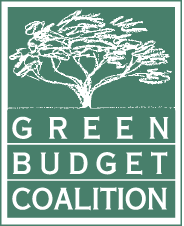Fisheries catch monitoring is essential for science, enforcement and compliance, improving business performance of fleets, and verifying of standards. Canada’s assessments and management of fish populations, including species at risk, relies heavily on at-sea observer coverage and dockside monitoring. There is a global call for a significant increase in monitoring, reporting, and transparency to ensure sustainable fishing.
Canada is supporting improved compliance and monitoring schemes of countries around the world, leading efforts to adopt high seas inspection schemes, funding global tracking systems, and participating in negotiations on electronic monitoring standards. However, at home, Canada’s fisheries monitoring is failing to achieve target coverage levels across a wide array of fisheries despite those levels being set at embarrassingly low targets for a leading fishing nation. The Auditor General of Canada has also identified severe shortcomings in Canada’s fisheries monitoring programs.
Canada’s most high-risk fisheries consistently fail to meet their observer coverage targets, due to a shortage of at-sea observers. Electronic monitoring (EM) has been at the forefront of discussions on how to address shortcomings of the system and increase reliable catch data in Canada. DFO has also identified bycatch monitoring and implementation of the Catch Monitoring Policy to ensure proper management and harvest under Target 10 of the 2030 Nature Strategy.
There is industry and stakeholder interest in increasing the capacity of Canada’s at-sea observer programs and developing EM standards and pilots, but resources are needed to prevent this work from stalling.
Therefore, the Green Budget Coalition recommends that the government invests directly in key areas of the system to kick start an immediate overhaul:
Recommended Investment:
$60 million over three years [DFO]
- Support up-front costs for electronic monitoring pilot projects and increased coverage for high risk fisheries. ($30 million)
- Establish electronic monitoring standards, data management policies, working groups, and modern data processing tools. ($20 million)
- Support recruitment and training for well-paying observer jobs, especially in community and Indigenous based businesses. ($10 million)

